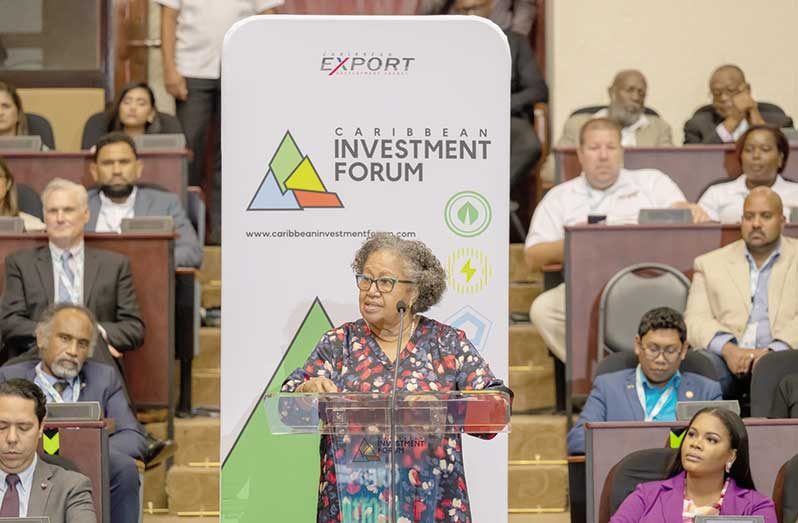SECREYARY-General of the Caribbean Community (CARICOM), Dr Carla Barnett has said that in the wake of the recent passage of Hurricane Beryl, investments by the region’s private sector in sustainable agriculture are crucial now more than ever.
Dr. Barnett was at the time speaking at the recently concluded Caribbean Investment Forum, where she said that the region’s vision of reducing the food import bill by 25 per cent by 2025 being led by President Dr. Irfaan Ali prioritises investment through increased local production and enhanced intraregional trade.
Consequently, she emphasised the significant strides the region has made in successfully implementing this initiative, with notable advancements in policy development, investment attraction, and risk reduction in the agriculture sector.
Several member states are now producing crops, even as partnerships have been established with farmers, the private sector and civil society.
However, Dr. Barnett said, “Private sector investment in sustainable agriculture is now crucial to bolster advantages and address challenges, especially since [Hurricane] Beryl has now caused significant setbacks.”
The passage of the hurricane devastated several islands, and caused extensive damage to others, causing a significant impact on several sectors.
With this, the Secretary-General said that CARICOM is again at an inflexion point where scarce capital has to be diverted from economic development towards supporting recovery and rebuilding from the effects of the hurricane.
Against this backdrop, she added that the region is prioritising investments that are climate-resilient which integrate improved farming techniques to address the region’s vulnerability to hurricanes, floods, droughts and rising sea levels.
“To date, our interventions in the region’s food and nutrition security have been targeted and deliberate,” Dr. Barnett said.
In terms of mitigating risks in the agriculture sector, she revealed the identification of a regional agro-insurance product. Efforts are currently being made to secure specialized capital funds for investment opportunities in various areas such as transport, logistics, digitization, and research.
With the support of the CARICOM private sector organisation, she added that they have pinpointed possible investment opportunities amounting to some US$1.2 billion covering agri-food value-chain opportunities to produce cereals and staples, vegetables, fruits and nuts among other items.
“Active partnerships with the private sector and investments in these and other areas will generate new industries, and support food and nutrition security for current and future generations,” Dr. Barnett added.



.jpg)









